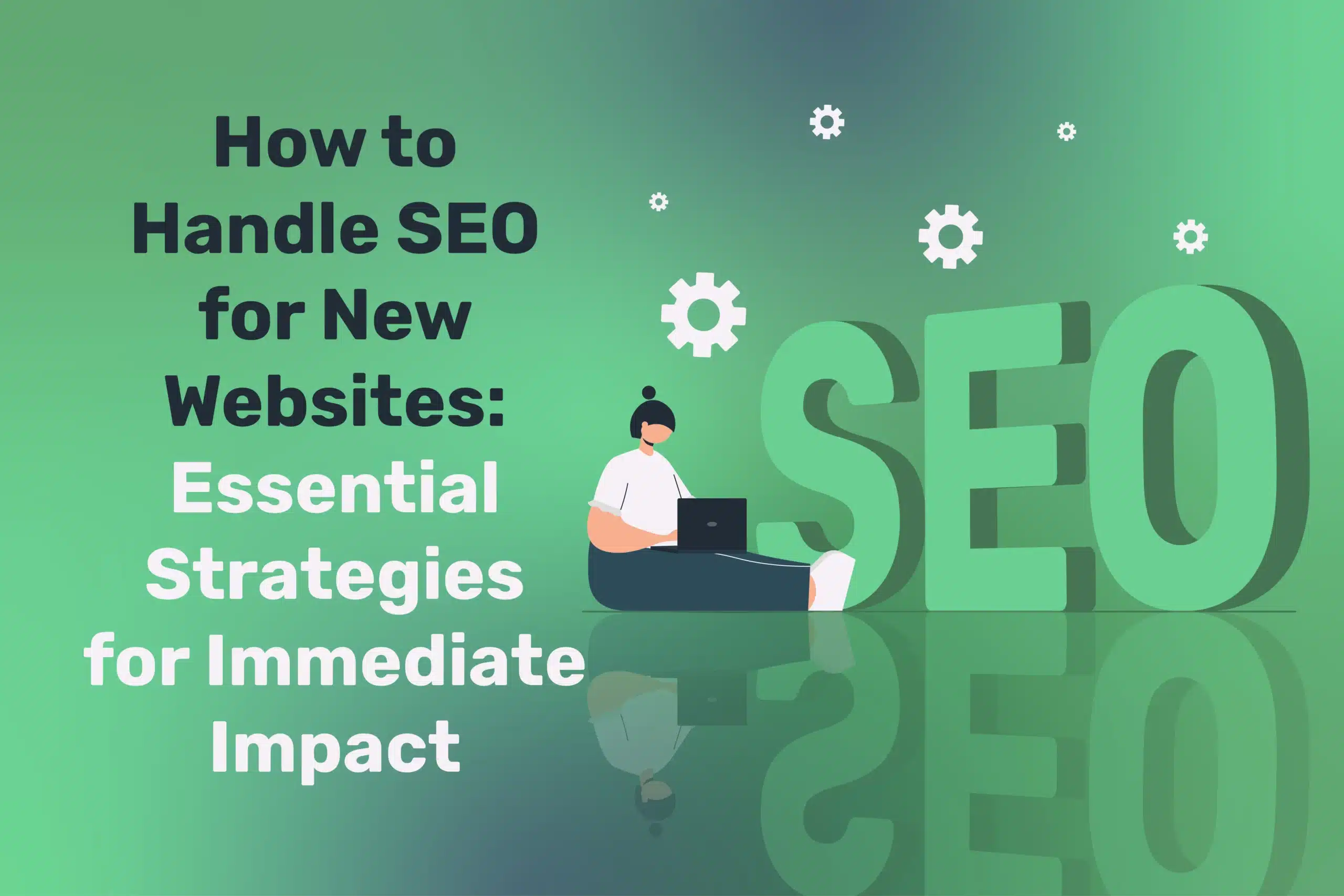
E-E-A-T: 5 Amazing Tips for Google’s Algorithm Updates
Table of Contents
Google’s Algorithm Updates: E-E-A-T – Google’s search algorithms evolve continually, and E-E-A-T (Experience, Expertise, Authoritativeness, Trustworthiness) now stands at the forefront of these changes. Whether crafting local content for an Irish audience or reaching customers across the UK, aligning with E-E-A-T principles can give your site the edge to stay competitive. Focusing on genuine expertise, user-first content, and trustworthy signals helps search engines see you as a standout resource among generic, unproven pages.
In places like Ireland, Northern Ireland, and the broader UK market, demonstrating real experience and authority in your niche often means the difference between ranking on page one or getting lost in the shuffle. Google’s latest updates underline that detailed, transparent, and verified information resonates with users and search engines alike. By embracing these guidelines, businesses can foster genuine online credibility and drive better performance in organic search results.
“E-E-A-T cements user trust—no matter if you’re a small Cork café or a nationwide UK retailer. Proving real experience and authoritativeness puts you ahead in Google’s eyes,” says Ciaran Connolly, Director of ProfileTree. In this article, we’ll uncover how each element of E-E-A-T functions, highlight key optimisations and present advanced SEO strategies that can help your brand thrive—even as Google continues to refine and enhance its algorithms.
Google’s Algorithm Understanding E-E-A-T: Four Pillars
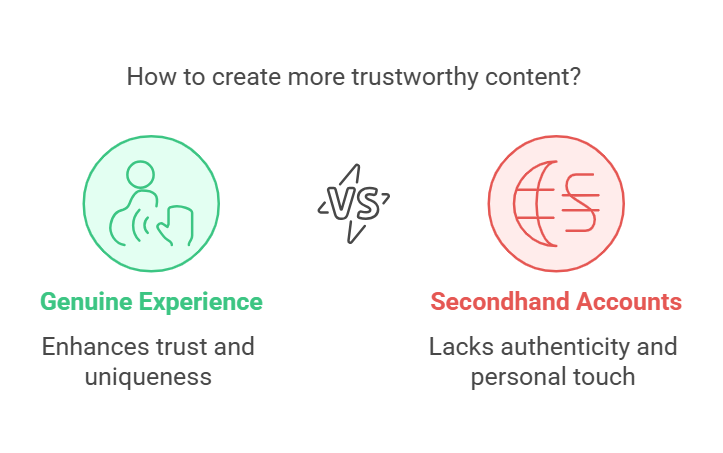
Experience (The New ‘E’)
Introduced more recently, “Experience” puts real-world interaction at the forefront of credible content.
When reviewing a new restaurant in Dublin, Google wants evidence that you ate there, such as photos or personal anecdotes.
Genuine accounts trump third-party summaries, as they boost authenticity and uniqueness.
Readers trust content that comes from direct observation or hands-on involvement.
Experience-driven pages are more likely to stand out from generic, secondhand write-ups.
Expertise
Expertise centres on showing deep knowledge through formal credentials or proven subject insights.
A tech-focused blog in Belfast discussing AI should reference industry experts or recognised standards.
Citing factual data, research, or authoritative sources can cement your authority.
Readers and search engines alike appreciate content that demonstrates mastery and precision.
When your expertise is verifiable, Google recognises your value to searchers.
Authoritativeness
Building authority involves securing quality citations and mentions from reputable outlets.
If your work appears in well-known publications, such as the Irish Times or BBC NI, it signals value.
A robust backlink profile from respected local or national domains also strengthens credibility.
When your name or brand gains traction within an industry, Google considers you a reliable source.
As a result, comprehensive, referenced pieces often gain higher visibility in organic search.
Trustworthiness
Trust hinges on user safety, accurate information, and transparent practices.
Encrypting your site with HTTPS, for instance, ensures secure interactions.
Disclaiming sponsored or affiliate content helps readers understand your relationship with products.
Prominently displaying contact details and showing real people behind the site fosters confidence.
Ultimately, a trusted site gains long-term loyalty from audiences and search engines.
Google’s Algorithm Nuances
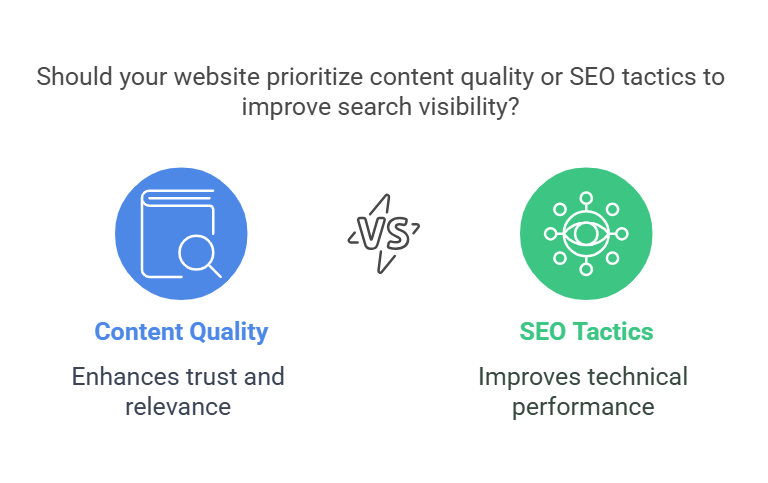
Google continues to refine its core updates, making it increasingly crucial for site owners to align with the latest ranking signals. These changes stem from the ongoing drive to serve users the most reliable, relevant, and genuinely insightful content possible. By zeroing in on real experiences and locally verifiable context, Google aims to weed out hollow or duplicated pages that offer nothing new. Sites that fail to meet these standards risk a drop in visibility as the search engine becomes more vigilant in identifying and penalising low-value content. Staying informed about evolving best practices is key to ensuring your web presence survives and thrives amidst ongoing innovation.
Emphasis on Real-World “Experience”
Recent core updates underscore the importance of first-hand knowledge rather than secondhand summaries. For instance, a blog post covering “Nightlife in Galway” carries more weight if the author genuinely visited local pubs, snapped original photos, and shared personal impressions. This direct evidence separates authentic content from general overviews or recycled facts. From the user’s perspective, detailed anecdotes, social proof, and unique visuals bolster credibility. Demonstrating genuine hands-on expertise helps your page shine within an increasingly discerning search ecosystem.
Spam and Unoriginal Content
With each algorithm adjustment, Google intensifies its stance against spammy content lacking substance or originality. For example, AI-generated text and mass-scraped posts frequently fail to offer unique insights or meaningful depth. If a brand in Birmingham relies on ChatGPT for blog writing, incorporating distinctive local stories, quotes from staff, or detailed usage examples can guard against accusations of “thin content.” Google aims to reward thoughtful, well-researched pieces rather than generic rehashes of existing information. Ensuring your material stands on its merit is crucial to maintaining strong rankings.
Local Relevance
Local SEO has always drawn from precise addresses, genuine user reviews, and staff bios showcasing a regional presence. However, under Google’s newer guidelines, weaving E-E-A-T into these local signals provides even greater authority and transparency. Featuring verifiable details—like business registrations, regional awards, or endorsements in directories—demonstrates authenticity and community trust. These signals echo across Google’s evaluation process, helping your site attain a more prominent place in local search.
“Core updates frequently target low-value or unoriginal pages. Proving you wrote from experience or tested a product hands you a major advantage,” notes Ciaran Connolly, Director of ProfileTree.
Building Experience: E-E-A-T Practical Tactics
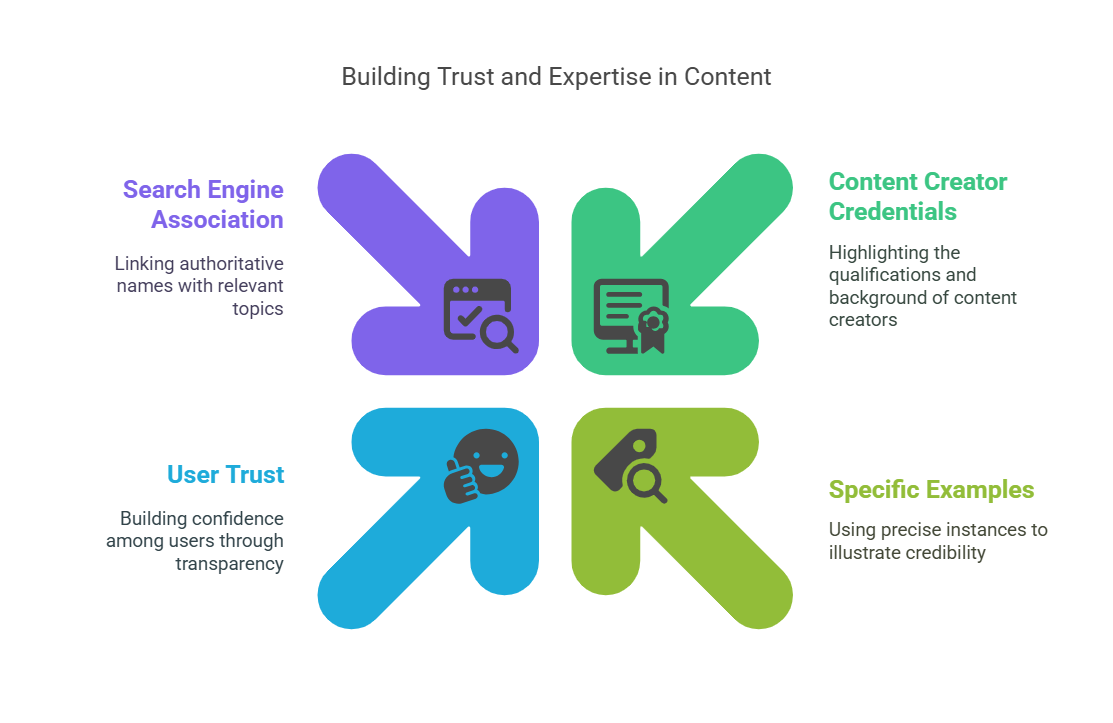
Original Photos and Videos
Capturing and using your visuals can showcase the real faces and operations behind your brand.
If you’re a Cork-based florist, highlight the arrangement process or staff interacting with customers.
These genuine photos surpass generic stock imagery, offering authenticity Google values.
Short video tours or product demonstrations can further emphasise practical, first-hand experience.
Such direct proof helps differentiate your site from competitors relying solely on sourced material.
Case Studies
Case studies offer an ideal platform to showcase thorough, on-the-ground expertise.
If you’re a Manchester-based software consultancy, demonstrate how you tackled a local client’s unique issue.
For a compelling narrative, incorporate concrete data, user feedback, and real-world quotes.
Detail timelines, challenges, and results to reinforce credibility and hands-on knowledge.
Such verifiable stories resonate with both potential clients and search engines seeking originality.
Staff Pages Reflecting Real Roles
Highlighting your actual team underscores authenticity and specialised human expertise.
If you have offices in Belfast or Edinburgh, feature staff bios that detail local presence and daily roles.
Include photos, credentials, and personal achievements to foster transparency and trust.
Showing tangible, relatable professionals reinforces a genuine user experience.
These personal insights offer a valuable, credible dimension uncommon among generic websites.
Expertise: Showcasing Knowledge Mastery
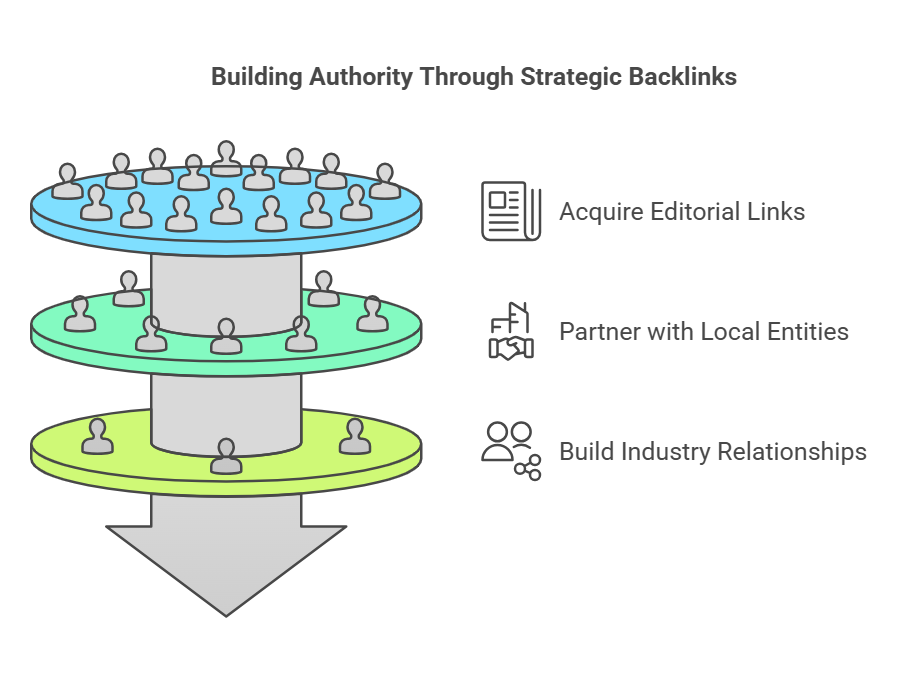
Author Bylines and Credentials
If your site covers health or finance topics, emphasise the credentials of your content creators.
For instance, “Written by Jane Smith, ACCA accountant based in Belfast” clarifies professional grounding.
Similarly, “Dr. Liam O’Reilly, Galway-based GP,” pinpoints medical credibility at a glance.
Such explicit bylines build user trust and convey domain expertise from the outset.
They also help search engines associate names with authoritative coverage of specific topics.
Links to Reputable Sources
Bolstering your content with official data fosters a stronger sense of reliability.
Referencing governmental webpages (e.g., gov.uk, ireland.gov.ie) establishes factual authenticity.
For AI-related pieces, citing The Alan Turing Institute or major academic bodies reinforces authority.
Proper citations back up your claims, demonstrating thorough research and care.
Over time, consistent attribution to credible sources signals higher expertise in Google’s algorithms.
Depth and Originality
True knowledge mastery goes beyond sharing surface-level tips and generic statements.
Include real case examples, local data, or first-hand interviews that capture practical insights.
By integrating verifiable details, you stand out from sites offering minimal depth.
Detailed narratives highlight specialised perspectives and genuine involvement in the topic.
“If you’re truly an expert, your content stands out with specificity, data, and clarity. Readers—and Google—detect that authenticity,” says Ciaran Connolly.
Authoritativeness: Gaining Industry Recognition
Quality Backlinks
Aim for editorial links from well-known news outlets like the Irish Times, BBC NI, or The Guardian.
Partnering with local chambers of commerce can lead to official mentions, enhancing your local SEO presence.
Authentic backlinks act as a vote of confidence, showcasing that reputable platforms endorse your content.
Building genuine industry relationships increases the likelihood of interviews and collaborative content.
Over time, this steady flow of credible references solidifies your standing as a trusted authority.
Press Coverage
Strategic press releases or event sponsorships in places like Derry or Cork can generate meaningful buzz.
Mentions in authoritative publications amplify your visibility and strengthen your brand reputation.
A “Press” or “Media Coverage” page on your site can compile these features for easy reference.
Associating with community causes or respected charities can further undermine your credibility.
When you regularly appear in reputable media, it signals a level of trust that sets you apart.
Social Proof
Displaying genuine testimonials from actual customers underscores your commitment to authenticity.
If you operate locally, highlighting feedback tied to specific towns or cities boosts social credibility.
Third-party reviews on Google, Trustpilot, or Yelp reinforce positive user experiences.
Personal stories and client quotes add a human dimension that resonates with prospective customers.
Ultimately, consistent praise from satisfied users promotes confidence in your brand’s expertise and reliability.
Trustworthiness: Building Confidence with Readers
Site Security and Contact Info
Ensuring a secure website is fundamental to building user trust and credibility.
HTTPS encryption signals that all data exchanges on your platform are protected from prying eyes.
Local businesses, whether in Limerick or London, should list their verified address to avoid any doubt.
Vague or hidden contact details often erode confidence, suggesting you have something to hide.
By making it easy for visitors to find and reach you, your site appears more transparent and responsible.
Transparency in Content
Being upfront about sponsorships or partnerships underscores a commitment to honesty.
If your content is sponsored, label it clearly—for instance, “Sponsored by X Brand”—so users know the context.
Linking to an updated privacy policy clarifies how you gather and safeguard user data.
Acknowledging affiliate or paid relationships shows readers you respect their right to informed decision-making.
Over time, such openness paves the way for deeper loyalty and trust among your audience.
Balanced, Accurate Tone
Facts and measured language can go a long way in reinforcing your brand’s reliability.
Avoid sensational headlines or clickbait, as these tactics breed scepticism rather than engagement.
If you use statistics, cite credible data sources to affirm their validity.
Producing well-researched, nuanced content regularly elevates your reputation for trustworthiness.
Readers are more inclined to return if they consistently find insightful, honest information on your site.
“A hallmark of trust is open disclosure—who wrote the piece, how data’s handled, disclaimers for sponsorship. Users hate sneaky or hidden motives,” advises Ciaran Connolly, Director of ProfileTree.
Advanced SEO Strategies Aligning with E-E-A-T
Comprehensive Topic Clusters
Discuss topic clusters by grouping related subpages under a central pillar page.
For instance, a Local SEO hub might feature sections like “Local Citations in Dublin” and “Reviews for Belfast SMEs.”
This structure helps Google see the depth of your knowledge, boosting your expertise signal.
Strategic internal linking with relevant anchor text solidifies your authority on multiple fronts.
Clustering also encourages users to explore more content, enhancing their overall experience.
Freshness Updates
Google favours sites that regularly refresh their content with new data and insights.
If you wrote about AI adoption rates in 2023, update it with the 2025 figure of 22.7% UK usage.
This ongoing revision merges your established authority with current relevance.
It also signals to your audience that you consistently monitor industry shifts.
By staying up to date, you reinforce your credibility and maintain more substantial search rankings.
Using FAQ Markup
Implement FAQ schema whenever your content addresses common user questions.
If you cover queries like “How can I expand my business in Northern Ireland using SEO?” list them systematically.
These structured Q&As might appear in SERP snippets, driving more clicks and trust.
E-E-A-T alignment is amplified as these answers demonstrate genuine expertise and helpfulness.
Incorporating FAQ schema shows Google that you value clarity, boosting your site’s advantages in search.
Measuring E-E-A-T Impact
Tracking Rankings and Brand Queries
Monitoring brand-related queries—like “ProfileTree Galway office” or “ProfileTree NI reviews”—can indicate rising authority.
If you see an uptick in these searches, trust in your brand is growing.
Also, keep an eye on your local-targeted keyword positions after rolling out experience-based content.
This alignment between stronger brand signals and improved rankings suggests your E-E-A-T strategy is paying off.
Through consistent observation, you’ll better understand what boosts visibility and where to refine efforts further.
User Engagement Metrics
Examining dwell time and return visits helps determine if your site meets user needs.
E-E-A-T content resonates deeply, emerging from first-hand experiences or proven expertise.
Longer on-page durations, along with lower bounce rates, signal your content is both engaging and valuable.
Don’t forget social shares from local communities, especially if you tackle region-specific topics.
These metrics reveal whether you’re effectively captivating and retaining your audience.
Qualitative Feedback
Tuning to user comments, discussion threads, or forum mentions offers crucial insights.
Readers praising your “authentic, in-depth approach” or detailing how they loved “staff stories from Cork” confirms real impact.
Conversely, users questioning your credentials implies you may need more apparent author backgrounds.
Gathering feedback from multiple sources helps you refine strategic angles that matter most to readers.
“Quantitative and qualitative metrics—like brand queries, watch time, user commentary—show if your E-E-A-T efforts genuinely enhance trust,” concludes Ciaran Connolly.
Pitfalls When Aiming for E-E-A-T
Over-Stuffed Author Bios
Staff biographies matter, but cramming them with every tiny qualification can appear self-promotional.
Focus on the most relevant achievements that support your site’s subject and bolster credibility.
Mention degrees, certifications, or experience that directly correlates to the content you produce.
Resist listing irrelevant personal milestones—clarity and relevance keep readers engaged.
A succinct, focused bio—e.g., “Jane Smith, BSc in Finance, 10 years in BFSI sector, based in Belfast”—is far more beneficial.
Fake or Fabricated Expertise
Undermining E-E-A-T by inflating or inventing credentials is a short path to lost credibility.
Google’s AI can cross-check endorsements, and savvy audiences quickly detect inconsistencies.
Claiming false degrees or certifications often backfires once fact-checking unfolds.
Memberships in genuine professional bodies and verifiable awards are safer bets.
Authenticity in qualifications builds long-term trust, ensuring users believe in your authority.
Underestimating Ongoing Effort
Establishing E-E-A-T isn’t just a one-off objective—you must sustain it continuously.
Bios, credentials, and content all need periodic reviews to remain accurate and up to date.
Maintaining transparent practices, refreshing data points, and responding to user feedback is essential.
As your organisation grows or adds new expertise, reflect those changes in your “About Us” section.
Ongoing commitment brings lasting user confidence, reinforcing that your site remains credible and current.
Strengthening E-E-A-T for Lasting Search Success
E-E-A-T—Experience, Expertise, Authoritativeness, Trustworthiness—is now fundamental to Google’s vision for high-quality content.
For businesses throughout Ireland, Northern Ireland, and the UK, embracing E-E-A-T means moving beyond basic SEO tricks toward genuine user-first principles.
Demonstrating real experience requires tangible proof in your domain—think case studies, original images, or first-hand research.
Augmenting that expertise with professional credentials, authoritative backlinks, and transparent press mentions further elevates your standing.
Openness and credibility form the backbone of trust, resonating with search engines and cautious online audiences.
As Google’s core updates clamp down on thin or recycled content, brands offering authentic, meticulously researched, and locally nuanced insights stand out.
Bringing user perspectives to the forefront, citing transparent data sources, and disclosing all partnerships help your site thrive in competitive SERPs.
Whether you’re a Gaelic crafts shop or a UK-spanning digital agency, consistent E-E-A-T alignment ensures depth and reliability.
Regularly auditing and refreshing references emphasise your adaptability and ongoing commitment to truth.
“At the end of the day, E-E-A-T means delivering genuine value… the more real-world evidence—even staff bios, fresh research, or local references—you offer, the stronger your authority becomes,” concludes Ciaran Connolly.




